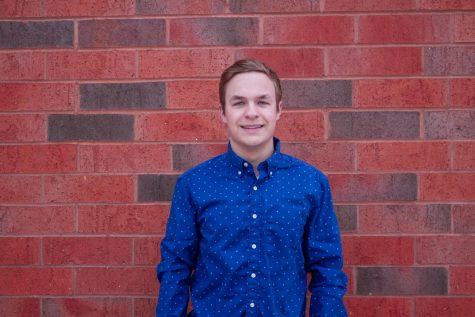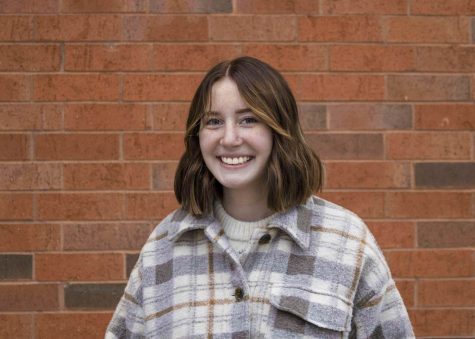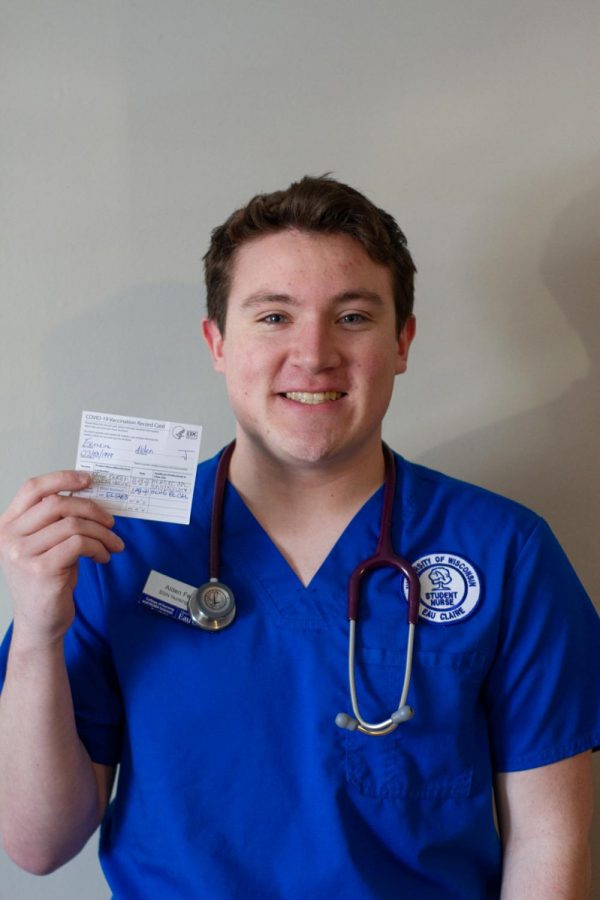Nursing students are receiving COVID-19 vaccinations
Students describe their experiences and why vaccines are important
Photo by McKenna Dirks
Alden Ferreira, a fourth-year nursing student, said he received two Pfizer vaccine doses over winterim.
Most students on campus are currently ineligible for a COVID-19 vaccine, but one group has been eligible since vaccine rollout began in late 2020.
UW-Eau Claire nursing students have been getting their COVID-19 vaccinations since Winterim Alden Ferreira, a fourth-year nursing student, said.
According to the Centers for Disease Control and Prevention, the vaccine is not available to the general public. Those who can get the vaccine currently are frontline health care workers and those in long-term care facilities. UW-Eau Claire nursing students fall under the frontline health care worker category, Ferreira said.
Ferreira said he received two Pfizer-BioNTech vaccine doses about 20 days apart over Winterim. He was able to get it because he works at Marshfield Clinic in Eau Claire and was a part of the first initiative to get their health care workers vaccinated.
Getting the vaccine was like getting any other vaccine: it’s a needle that goes into your arm and it hurts a little and then it’s over, Ferreira said. There are also side effects that can occur, as they did with Ferreira.
“Everybody experiences different side effects, from what I hear from other nursing students,” Ferreira said.
After the first shot, he only experienced a sore arm. After the second dose, he said he woke up the next day with fever, body aches and a headache. However, he said it only lasted 24 hours and that while these sound like COVID-19 symptoms, it was likely his body’s immune response to the vaccine.
Olivia Weirtz, a fourth-year nursing student, said she had no side effects from her first dose of the Pfizer-BioNTech vaccine and received her second dose on Feb. 16. Weirtz said she was feeling good at the time, and was able to get the vaccines through working at the Mayo Clinic.
“They said any type of side effect would occur 8-12 hours after I got it,” Weirtz said.
Anna Larson, a fourth-year nursing student said she received the Moderna vaccine through her job because she works with elderly patients. She said she experienced body aches and chills that lasted for 24 hours after each dose and felt fine the next day.
“I did have a bigger reaction to the vaccine than most people I know,” Larson said.
Ashley Niehaus, a fourth-year nursing student, also received the Pfizer-BioNTech vaccines in January from the Mayo Clinic. In her experience, she said she had a sore arm and fatigue from the first dose and only a sore arm from the second dose.
“I am not a person who naps, but I went to bed at 7 p.m. that day,” Niehaus said. “I was dead tired.”
Weirtz said the reason nursing students are getting vaccinated is because of patient contact. They come into contact with a lot of vulnerable people and are exposed to COVID-19 frequently at work, she said.
Larson said she believes it is important for nursing students to get vaccinated because they are advocating for other people to get vaccinated. She said fear spreads on social media and it is nurses that people will look to in order to see if it is safe because they are receiving it first.
Niehaus said she was never skeptical about getting a COVID-19 vaccine but was rather excited. She said she remembers hearing rumors about it, but knew the next step to a return to normalcy was getting people vaccinated.
Personally, Ferreira said he wanted to get vaccinated because he wanted to be able to protect members of his family and members of his community. He said being able to get the vaccine so early has made him feel very lucky.
“I definitely feel like it is a privilege, and it’s one I will not not take for granted,” Ferreira said.
Plueger can be reached at [email protected].

Miles Plueger is a third-year public relations and marketing student. He spent quarantine teaching himself guitar. He also makes a mean chicken stir fry.

McKenna Dirks is a fourth-year journalism student and this is her seventh semester on The Spectator staff. She thrives under chaotic environments, loves plants and often gives off "granola girl" vibes with her Blundstone boots.











